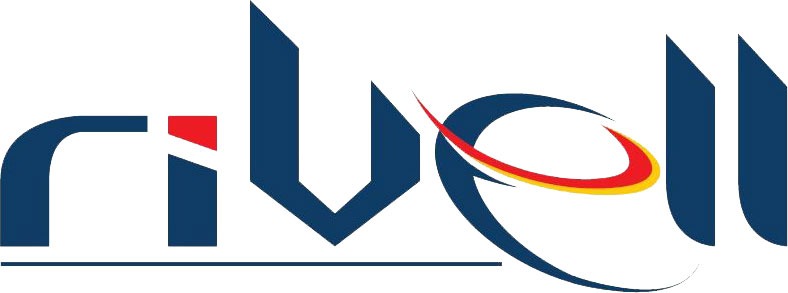Introduction
In today’s fast-paced digital landscape, businesses rely heavily on technology to operate efficiently, stay competitive, and achieve long-term success. One key component of a thriving technological ecosystem is managed IT infrastructure. With the constant evolution of technology and the increasing complexity of IT systems, businesses need a reliable partner to manage their infrastructure effectively.
According to Expert Market Research, The global data centre IT infrastructure market is expected to grow at a CAGR of more than 20% in the forecast period of 2023-2028.
In this blog post, we will delve into the reasons why managed IT infrastructure is vital for business success.
Reasons why managed IT infrastructure is vital for business success
1. Enhanced Efficiency and Productivity
Managed IT infrastructure allows businesses to offload the responsibility of managing their technology infrastructure to a team of experts. This enables organizations to focus on their core competencies while leaving the technical aspects to professionals. Managed service providers (MSPs) ensure that systems are up and running, monitor performance, and proactively address any potential issues. By optimizing infrastructure, businesses can achieve higher levels of efficiency, leading to increased productivity and streamlined operations.
2. Proactive Maintenance and Support
With managed IT infrastructure, businesses gain access to proactive maintenance and support services. MSPs monitor networks, servers, and other critical components 24/7, detecting and resolving issues before they escalate into major problems. Regular system updates, security patches, and proactive maintenance ensure that the infrastructure remains secure, stable, and up to date. This proactive approach minimizes downtime and maximizes the availability of critical business systems.
3. Scalability and Flexibility
As businesses grow, their IT infrastructure needs to scale accordingly. Managed IT infrastructure offers the flexibility to accommodate changing business requirements. MSPs possess the expertise to seamlessly expand infrastructure, add new users, and integrate emerging technologies. Whether it’s increasing storage capacity, upgrading servers, or implementing cloud solutions, managed IT infrastructure enables businesses to scale their technology resources with ease, supporting growth and adaptability.
4. Advanced Security Measures
Cybersecurity threats pose a significant risk to businesses of all sizes. Managed IT infrastructure includes robust security measures designed to protect sensitive data, networks, and applications. MSPs implement multi-layered security protocols, including firewalls, intrusion detection systems, encryption, and regular vulnerability assessments. With a dedicated team monitoring security threats and promptly responding to incidents, businesses can enjoy peace of mind, knowing that their critical assets are safeguarded against evolving cyber threats.
5. Cost Efficiency
Investing in and maintaining an in-house IT infrastructure can be prohibitively expensive for many businesses. Managed IT infrastructure offers a cost-effective alternative. Instead of incurring substantial upfront costs for hardware, software, and maintenance, businesses can opt for a subscription-based model, paying for services on a monthly basis. This helps reduce capital expenditures while providing predictable, manageable IT costs. Additionally, the expertise and resources provided by MSPs eliminate the need for hiring and training dedicated IT staff, further reducing overhead expenses.
6. Focus on Core Business Objectives
By outsourcing IT infrastructure management to experts, businesses can redirect their internal resources toward core business objectives. The MSP takes care of routine maintenance, troubleshooting, and infrastructure management, freeing up valuable time and resources for innovation, strategic planning, and business growth. This allows businesses to stay agile, respond swiftly to market changes, and maintain a competitive edge in their industry.
Advantages of IT Infrastructure
1. Increased Connectivity and Collaboration
IT infrastructure facilitates seamless communication and collaboration among team members, departments, and even across different geographical locations. With interconnected systems, employees can easily share information, collaborate on projects, and access resources, leading to improved productivity, efficiency, and teamwork.
2. Improved Data Management and Accessibility
IT infrastructure enables businesses to efficiently manage and store vast amounts of data. Centralized data storage systems, such as servers or cloud-based solutions, ensure data accessibility and integrity. This allows employees to retrieve and share information quickly, make data-driven decisions, and respond to customer needs promptly.
3. Enhanced Decision-Making
Access to real-time data and analytics through IT infrastructure empowers businesses to make informed and strategic decisions. With data visualization tools and reporting systems, key stakeholders can gain valuable insights into operational performance, market trends, and customer behavior. This facilitates proactive decision-making and helps businesses stay ahead of the competition.
4. Automation and Streamlined Processes
IT infrastructure enables businesses to automate repetitive tasks, streamline workflows, and optimize processes. Through the use of software applications, workflow management systems, and robotic process automation (RPA), businesses can reduce manual errors, minimize bottlenecks, and improve operational efficiency. This leads to cost savings, increased productivity, and a better customer experience.
5. Business Continuity and Disaster Recovery
IT infrastructure plays a crucial role in ensuring business continuity and mitigating the impact of potential disasters. With robust backup and recovery systems, businesses can protect their critical data and applications, minimizing downtime and ensuring seamless operations during unexpected events. IT infrastructure also enables disaster recovery planning and testing, allowing businesses to bounce back quickly in the face of disruptions.
6. Competitive Advantage
A well-designed and optimized IT infrastructure can provide businesses with a competitive edge. It allows for rapid innovation, agile responses to market changes, and the adoption of emerging technologies. By leveraging IT infrastructure strategically, businesses can differentiate themselves, deliver superior products or services, and attract and retain customers in a rapidly evolving digital landscape.
7. Compliance and Security
IT infrastructure helps businesses adhere to industry regulations and security standards. Robust security measures, such as firewalls, encryption, access controls, and intrusion detection systems, protect sensitive data from unauthorized access or breaches. Compliance management tools and audit trails ensure businesses meet regulatory requirements, safeguard customer data, and maintain trust with stakeholders.
8. Customer Experience
IT infrastructure plays a crucial role in delivering an exceptional customer experience. Customer relationship management (CRM) systems, integrated communication channels, and personalized service delivery enable businesses to understand customer needs, provide timely support, and deliver customized solutions. This fosters customer loyalty, satisfaction, and positive brand perception.
Conclusion
In the digital age, where technology plays a pivotal role in business success, managed IT infrastructure, including network infrastructure services, has become indispensable for businesses in NJ and beyond. It offers businesses the opportunity to enhance efficiency, improve productivity, ensure security, and achieve scalability—all while reducing costs and enabling a laser-like focus on core business objectives. By partnering with a reliable managed service provider (MSP) specializing in network infrastructure services in NJ, businesses can leverage their expertise and resources, allowing them to thrive in a rapidly evolving technological landscape.











